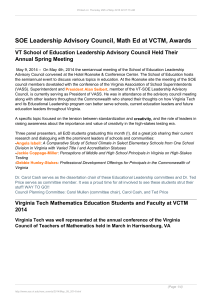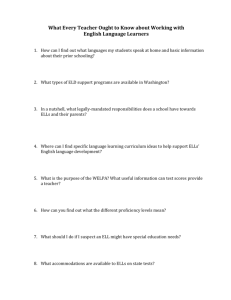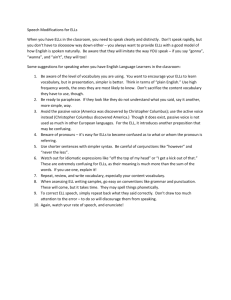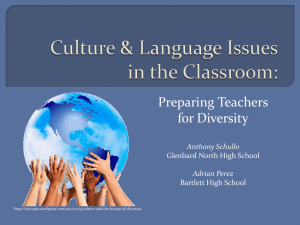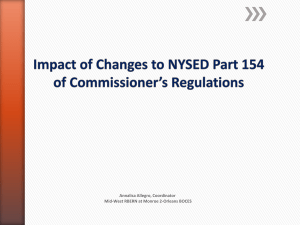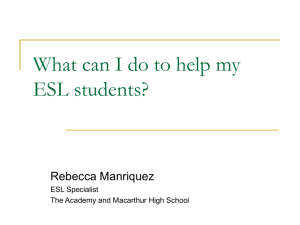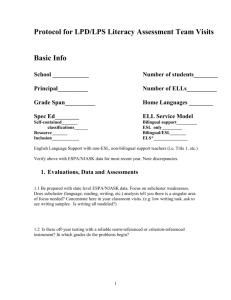Math Ed at VCTM, Awards 2014
advertisement
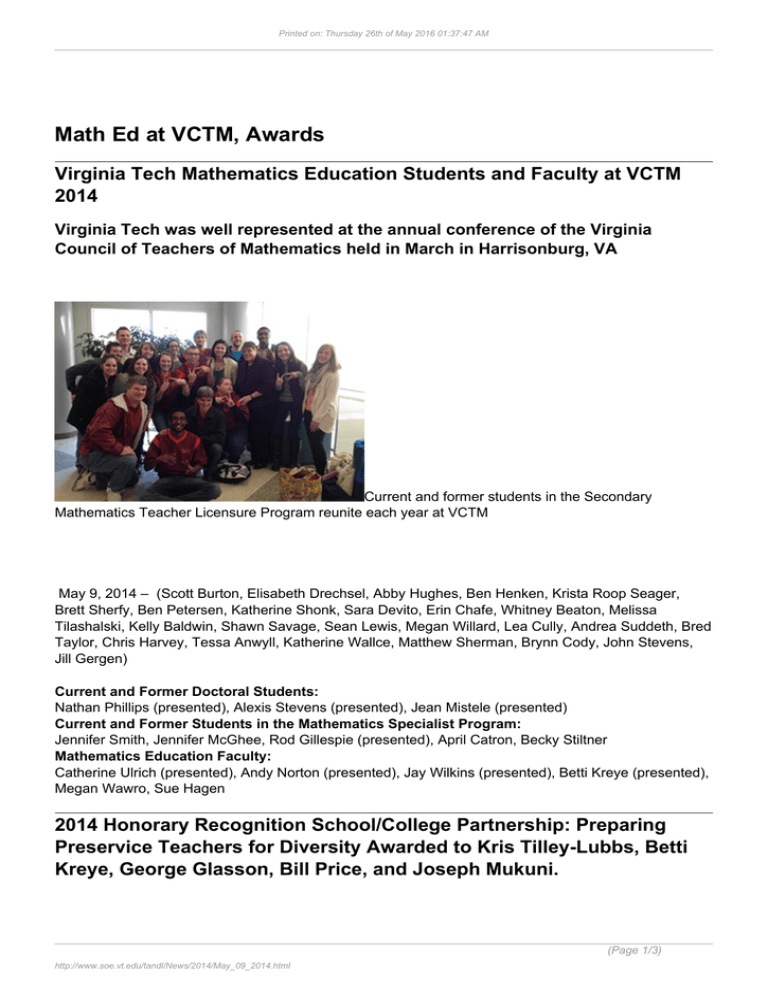
Printed on: Thursday 26th of May 2016 01:37:47 AM Math Ed at VCTM, Awards Virginia Tech Mathematics Education Students and Faculty at VCTM 2014 Virginia Tech was well represented at the annual conference of the Virginia Council of Teachers of Mathematics held in March in Harrisonburg, VA Current and former students in the Secondary Mathematics Teacher Licensure Program reunite each year at VCTM May 9, 2014 – (Scott Burton, Elisabeth Drechsel, Abby Hughes, Ben Henken, Krista Roop Seager, Brett Sherfy, Ben Petersen, Katherine Shonk, Sara Devito, Erin Chafe, Whitney Beaton, Melissa Tilashalski, Kelly Baldwin, Shawn Savage, Sean Lewis, Megan Willard, Lea Cully, Andrea Suddeth, Bred Taylor, Chris Harvey, Tessa Anwyll, Katherine Wallce, Matthew Sherman, Brynn Cody, John Stevens, Jill Gergen) Current and Former Doctoral Students: Nathan Phillips (presented), Alexis Stevens (presented), Jean Mistele (presented) Current and Former Students in the Mathematics Specialist Program: Jennifer Smith, Jennifer McGhee, Rod Gillespie (presented), April Catron, Becky Stiltner Mathematics Education Faculty: Catherine Ulrich (presented), Andy Norton (presented), Jay Wilkins (presented), Betti Kreye (presented), Megan Wawro, Sue Hagen 2014 Honorary Recognition School/College Partnership: Preparing Preservice Teachers for Diversity Awarded to Kris Tilley-Lubbs, Betti Kreye, George Glasson, Bill Price, and Joseph Mukuni. (Page 1/3) http://www.soe.vt.edu/tandl/News/2014/May_09_2014.html Printed on: Thursday 26th of May 2016 01:37:47 AM Kris Tilley-Lubbs Associate Professor of ESL and Multicultural Education ATE-VA (Association of Teacher Educators in Virginia) recognized five colleagues from the Department of Teaching and Learning for their collaborative work in preparing their preservice teachers to work effectively with English language learners. The project is situated at Stonewall Jackson Middle School, which has been designated as the Roanoke City Public Schools Center for Middle School English Language Learners (ELL). Approximately 188 ELL students, representing 28 countries, are bused from Roanoke's four quadrants to attend the school. The ESL Education program has been working at this school for six years in a service-learning project at the afterschool program. In 2010, the Mathematics Education program joined in working with the ESL Education program, and in 2012, Science Education and Career and Technical Education joined the project. In addition to working toward providing quality education for ELL, as our objective, we also seek ways to broaden experiential education for student interns and SOE faculty in ESL and content area education. Each all semester, the Virginia Tech mathematics and ESL student interns participate in a servicelearning project at the afterschool program. Each graduate student spends 20 hours working with the staff at the afterschool program, assisting ELLs in completing tasks. These activities range from tutoring individual students to supervising or participating in sports with the ELLs. This activity not only provides additional support for the ELLs but also enhances the experiential learning of the knowledge, skills, and dispositions teacher education candidates need to enter the profession prepared to work effectively with ELLs. As reported in the reflection activities the interns submit as part of their university coursework, they often develop relationships with the ELLs that foster a sense of belonging and self-esteem in the ELLs. This provides the interns with a realistic look at the social interactions and academic challenges ELLs face on a daily basis. They become aware of the importance of providing homework support for students who might not have support at home as well as of the importance of learning to communicate with students who struggle with oral and written communication in English. They also learn about the tensions that exist among different groups of immigrant and refugee students. They have the opportunity to observe and interact with students whom they would otherwise only know in a classroom session. Also during the fall semester, all four groups of student interns, including Science Education and Career and Technical Education as well as Mathematics Education and ESL Education, participate in teaching a content lesson at the afterschool program. The content student interns collaborate with the ESL interns to prepare lessons that align ELL linguistic proficiency levels with the content SOL. This is an ongoing project that has run successfully for four years. As the project continues, Drs. Kreye and Tilley-Lubbs have become more involved at the school and district level, coordinating the project at (Page 2/3) http://www.soe.vt.edu/tandl/News/2014/May_09_2014.html Printed on: Thursday 26th of May 2016 01:37:48 AM the superintendent level. They also serve on an advisory board for the afterschool program. This involvement provides more opportunities for this project to be a true partnership, with input from both PK-12 and university personnel. Division of Student Affairs Call for Proposals Inaugural Aspirations for Student Learning Symposium November 2-3, 2014 The submission process to the symposium involves a call for proposals and a submission of papers. Those interested in presenting at the symposium should first submit a proposal beginning March 15 through May 30, 2014. These proposals will then be peer-reviewed. Those authors whose proposals are selected for the symposium will then be asked to submit a paper by September 1, 2014. Authors of selected proposals will receive a $1,000 stipend for completion and presentation of the paper. More information is included in the symposium description and submission guidelines. Questions: ASLsymposium@vt.edu American Educational Research Association (AERA) 2015 Annual Meeting Toward Justice: Culture, Language, and Heritage in Education Research and Praxis www.aera.org[1] The 2015 AERA Annual Meeting theme is a call to examine the meaning of culture, language, and heritage in education research and praxis with the aim of advancing justice. We have the opportunity and the moral obligation to apply principles and evidence from social science research and theorizing to the problems of injustice. How do various communities conceptualize justice, including the many scholarly communities within our association? One of the questions considered in the brief that AERA submitted to the U.S. Supreme Court in the Fisher v. University of Texas at Austin case is whether diversity is, in fact, a compelling interest in education. The 2015 Annual Meeting theme suggests the relevance of a related empirical and valuesbased question: "Is justice a compelling interest in education research, theorizing, and policy-making?" What research evidence and ways of knowing across the AERA divisions and SIGs are relevant to an ethically informed stance regarding empirical inquiry and theorizing in the human sciences and education praxis? The 2015 Annual Meeting theme is intended to focus our attention on justice -locally as well as globallyin a spirit of mutually respectful collaborative engagement with our disciplines and modes of inquiry in the context of the world around us. The aim is to make room for democratized knowledge and knowledge production in which the experiences of all people are shaped by principles and practices of justice. When we do so, our scholarly interests can align more closely with the interests of justice for those who have been and are educationally marginalized, dispossessed, and excluded. Links [1]. http://www.aera.org (Page 3/3) http://www.soe.vt.edu/tandl/News/2014/May_09_2014.html Powered by TCPDF (www.tcpdf.org)
